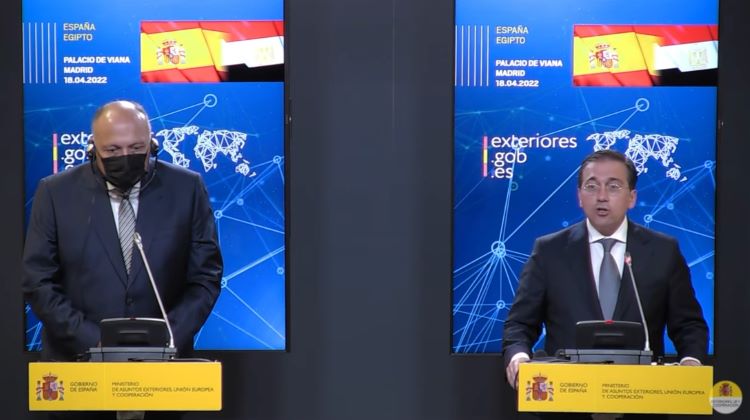The Diplomat
The IMEX 2022 internationalisation week kicked off yesterday in Madrid with a special emphasis on the possibilities that are opening up for Spanish companies in Africa.
The opening day was attended by Xiana Méndez, Secretary of State for Trade; Ángel Asensio, President of the Madrid Chamber of Commerce and Jaime Ussía, President of IMEX, under the coordination of the Director of IMEX-Impulso Exterior, José Terreros Andreu.
Both the inauguration and the first debates were attended by representatives of different institutions and private companies, as well as the Angolan Minister of Industry and Tourism, Víctor Francisco Dos Santos Fernández and delegations from Equatorial Guinea, Ghana, Gambia, Mozambique, among other African countries.
During the opening ceremony, Asensio pointed out that Spain’s trade is the European Union country that has grown the most in internationalisation, with 21% in the last year, compared to the European Union average of 17%, and added that Spain has managed to increase its base of exporting companies by 7%, according to the latest data handled by IMEX.
For her part, Xiana Méndez praised the capacity of Spanish foreign trade to recover from the COVID pandemic, and underlined the framework of sustainability in which Spanish companies carry out their activity, which, in her opinion, “provides a differentiating element and therefore a comparative advantage”. “Sustainability, she said, also offers access to market niches and new sources of financing.
In the first debates of the Internationalisation Week, it was highlighted that for the Spanish business sector and for the government and its institutions, Africa is considered a key and strategic objective of its foreign trade, as demonstrated by the trade relations with the African continent, which already far exceed those that Spain maintains with a more traditional partner such as Latin America.
One of the panels, moderated by the director of Atalayar, Javier Fernández Arribas, was attended by Ana Vicente Lancho, Deputy Director General for Mediterranean Countries, Africa and the Middle East at the Ministry of Trade, Industry and Tourism; Marta Blanco Quesada, President of CEOE International; and Teresa Langle de Paz, Director General of the Women for Africa Foundation.
When speaking about the perception of business risk when venturing into Africa, they agreed on the lack of knowledge of the African continent and of the systems in many of its countries on the part of Spanish businessmen, who hold back their investment and trade initiatives, for fear of a lack of political and fiscal stability or of a correct regulatory framework for good business development.
On this point, Ana de Vicente Lancho pointed out that, as indicated by the Elcano Institute in a November study, it has been shown that many African countries have a more appropriate social and legal climate than some other European countries, and that the perception of risk on the part of companies decreases enormously once they have undertaken some commercial action in Africa.
A phrase repeated throughout the day was “Africa is not only the future, it is already the present”, very much in line with the theme of the second round table, in which Alicia Rico, Director General for Africa at the Ministry of Foreign Affairs; Irene Lozano, Director of Casa Árabe; José Segura, Director of Casa África; Ricardo Santamaría, Director of Country Risk and Debt Management at CESCE; and Jaime Montalvo, Director of International at the Spanish Chamber of Commerce took part.
Alicia Rico highlighted the importance of the Free Trade Agreement for Africa, not only because of the commercial interests that it would bring in the long term, but also because of its symbolism for having obtained the signature of all the African leaders with seats in the African Union. The directors of the Arab and African Houses agreed with her, and recalled the depth and diversity of Spain’s relations with some of these African countries, especially Morocco.
Jaime Montalvo, for his part, broke down some of the most important data and points that explain the success of Spain’s foreign trade. He highlighted the figure of 40,000 exporters who demonstrate their capacity to develop projects abroad, the numerous promotion mechanisms for companies through the Spanish administration, as well as the financing resources.
For his part, Ricardo Santamaría Burgos, Director of Country Risks and Debt Management at CESCE, acknowledged that there are threats in terms of foreign trade with Africa, located in some specific areas that are affected by three main problems: The rise of jihadism in certain regions, and the instability it brings; political instability summarised in the five coups d’état that Africa has suffered in the last 18 months; and finally the evolution of debt and the inability to obtain financing from some African countries, which makes it very difficult to promote their economy.







